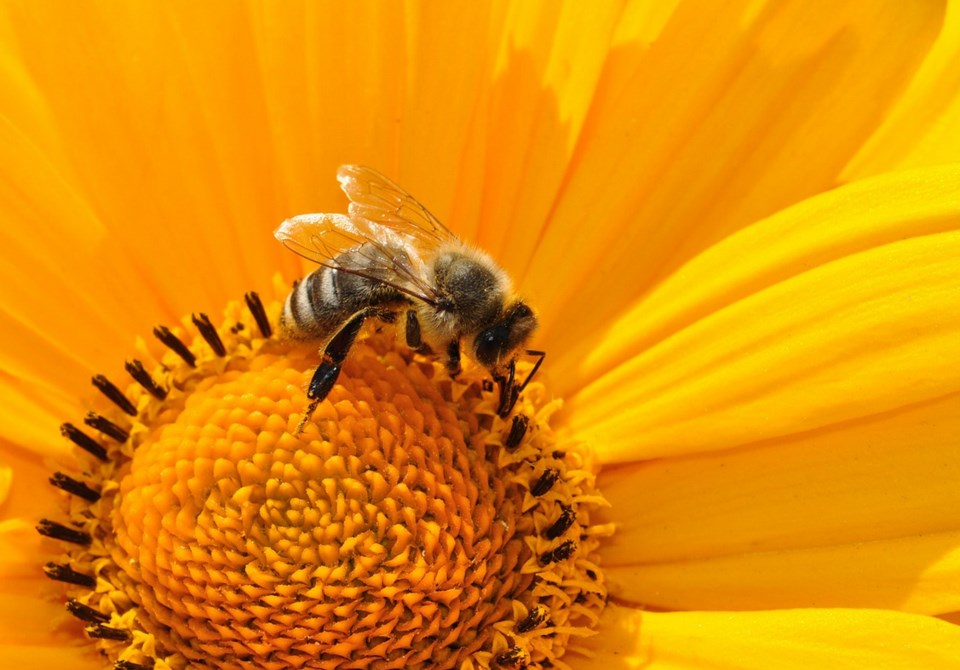Delta is buzzing with activities to be a Bee Friendly city.
A report to city council notes staff are in the process of installing a demonstration pollinator garden in Rotary Park at City Hall, which includes a diverse selection of pollinator-friendly plants.
The pollinator garden will have signage to educate the public about the benefits and characteristics of a pollinator garden and the individual plants.
Among the other actions are reduced mowing at the McCloskey Hydro Corridor to allow a pollinator meadow to form during the summer, in partnership with BC Hydro and the Cougar Creek Streamkeepers, incorporating pollinator-friendly plants into existing plant beds around the city, as well as supporting efforts of a Ladner resident who is supporting the David Suzuki Foundations' Butterflyway Project, which has a goal to establish habitat for local bees and butterflies in communities throughout the country.
Outside the Douglas J. Husband Discovery Centre will be fruit trees and bee hives, highlighting the importance of pollinators to the agricultural community.
Activities by others taking place include an initiative by the Ladner Business Association that sees a blend of cosmos seedlings from West Coast Seeds, called the Dr. Bonnie Henry Pollinator Blend, planted recently in the village.
The “pollinator patch” is to raise more awareness about the importance of supporting the different pollinators.
The Rotary Club of Tsawwassen, meanwhile, recently dedicated their time to planting a brand new pollinator garden at Earthwise Garden.
Last September, the City of Delta was declared a Bee City, becoming the 43rd Canadian city by Bee City Canada to have the distinction.
The designation is awarded to cities that publicly declare they will protect pollinators and their habitats through coordinated and collaborative actions that align with the Bee City program.
By becoming a Bee City, the city has committed to protecting local pollinators by increasing the number of pollinator-friendly flowers in current and future civic garden beds and rain gardens, modernizing municipal mowing practices to benefit pollinators and developing partnerships with interested members of the community.
“Bees and other pollinators have experienced a dramatic decline on a global scale, and we must take action to protect all pollinators. Being named a Bee City is a proud achievement for the City of Delta. I look forward to strengthening our commitment to protecting and conserving Delta's pollinator population for many years to come,” said Mayor George Harvie at the time.
City staff will also focus on increasing community awareness and empowering businesses and residents to nurture pollinator-friendly habitats on private property.
The city started a Mason Bee Box program a decade ago.
Delta’s zoning bylaw permits beekeeping as an accessory use to single-family and duplex dwellings, and for education purposes in public areas.


